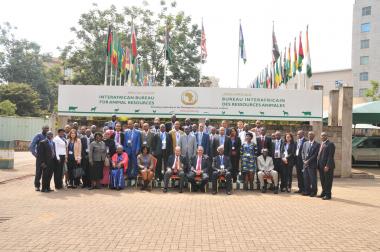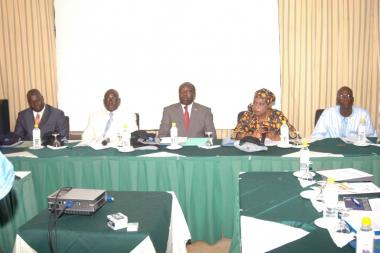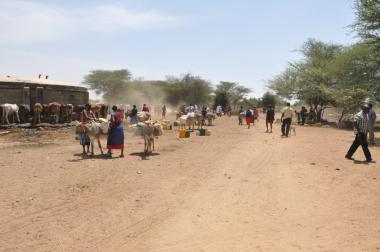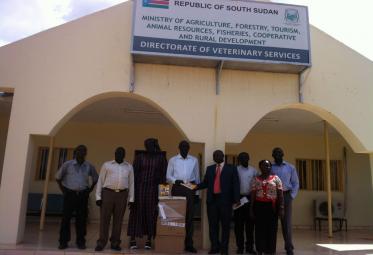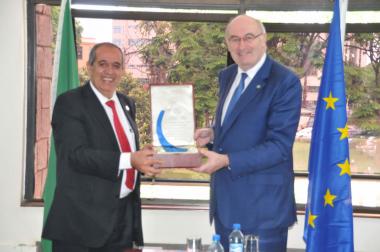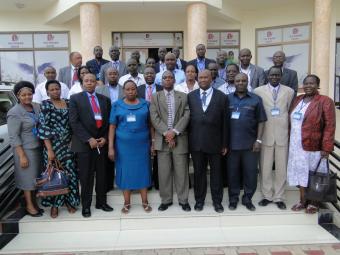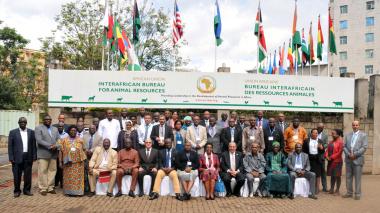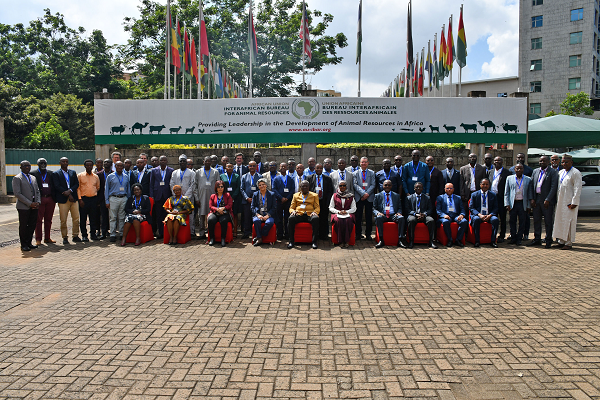
Today, May 15th, 2024, AU-IBAR is hosting the 16th Pan African Chief Veterinary Officers (CVO) and WOAH Delegates Meeting to address urgent animal health issues. The meeting aims to review and develop African common positions on WOAH international standards, validate regional strategies for disease control, and promote sustainable livestock transformation. Additionally, it seeks to facilitate strategic discussions, enhance partnerships, and strengthen Africa's role in global standard-setting processes. Discussions will cover outcomes from various commissions such as the Terrestrial Animal Health Standards Commission, Aquatic Animal Health Standards Commission, and Biological Standards Commission. The meeting will conclude with revising, consolidating, and adopting draft African common positions for the 91st General Session of WOAH.
During the opening of the meeting, AU-IBAR Director, Huyam Salih highlighted the transformative economic impact of the African Continental Free Trade Area (AfCFTA), which boosts intra-African trade and strengthens Africa’s position in global trade negotiations. Dr. Salih emphasized the importance of eliminating Peste des Petits Ruminants (PPR) and rabies, addressing concerns about voting rights in WOAH, with 23 African member states currently ineligible to vote. Delegates were informed that the European Union has pledged 8 million Euros for the Pan African PPR Programme, which includes capacity development and a PPR vaccination strategy. It was further noted that rabies, claiming 25,000 lives annually in Africa, primarily affects children under 15, and the AU Commission is leading efforts to eliminate dog-mediated rabies by 2030.
Dr. N’Lemba Mabela, President of the WOAH Commission for Africa, stressed the need for a unified stance on key issues. He urged participants to develop common positions on maintaining good sanitary practices and enhancing market access. By building consensus, African nations can better navigate international trade dynamics, ensuring animal health standards are met and facilitating smoother, more equitable market entry for their animal products. Dr. Mabela emphasized that a collective approach is essential for strengthening Africa's voice in global animal health governance and trade negotiations.
Kenya’s Acting Director of Veterinary Services, Dr. Allan Azegele, reiterated Kenya's commitment to controlling PPR, Foot and Mouth Disease (FMD), and rabies. He thanked the European Union for its support and urged all member states to prioritize these diseases. He highlighted the importance of trade in animals and animal products, which make up 17% of Africa's trade in this sector. Ensuring animal health is crucial for both domestic consumption and economic trade.
Dr. Azegele also underscored the need to adopt standards that prevent trade barriers, particularly for the upcoming 91st WOAH meeting. He highlighted the role of sanitary standards and the SPS Framework in facilitating smooth intra-African trade in animal products, calling for a unified African voice in these matters.
The meeting brings together Chief Veterinary Officers, WOAH delegates, FAO representatives, AU-IBAR staff, animal health experts, and development partners. This inclusive approach aims to ensure thorough discussion and collaboration towards common goals.
Improving food security, creating jobs, and integrating into global food trade networks depend on Africa's agricultural environment. Sustainable livestock transformation and market access hinge on robust health and safety measures in livestock value chains. While Africa holds significant agricultural potential, there are substantial challenges to overcome. Ensuring public health and the integrity of animal products is crucial amid changing international trade dynamics.
The 16th Pan African CVO meeting represents a significant step forward for animal health, trade, and sustainable development in Africa. By fostering collaboration, capacity building, and strategic dialogue, the event aims to address critical issues and propel the continent towards a more resilient and inclusive livestock sector. As the summit continues, it promises to yield insights and solutions beneficial to both Africa and global initiatives in animal health and food security.
The collaboration between FAO, WOAH, and AU-IBAR is pivotal in establishing global norms and providing technical support to member nations. Their joint efforts in disease management, market access for African animal products, and capacity building are vital.

